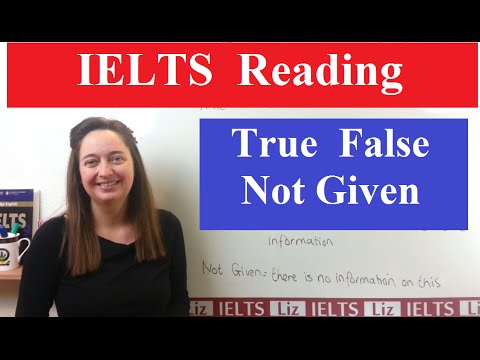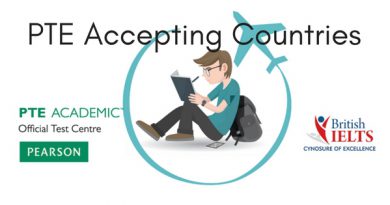Few Reading Tips for IELTS and PTE exam
IELTS Reading is one of the modules of IELTS that needs an equal attention as others do. But many of us feel that it does not require too much practice because of the reason that we have been doing it since our school. For us- Just read the questions and start finding the similar statement in the comprehension to hit the answers. This trick was good enough till our schools but now you need to be more smart and answer the questions perfectly. More logically you move, more marks you can grab in IELTS that integrates to your IELTS overall bands.
 There are two exams of IELTS- Academic and General. Both contain reading sections but the level of difficulty is bit higher in Academic Reading. But nothing is difficult if you prepare at your best. Let’s endure through the following tips:
There are two exams of IELTS- Academic and General. Both contain reading sections but the level of difficulty is bit higher in Academic Reading. But nothing is difficult if you prepare at your best. Let’s endure through the following tips:
- Don’t read the passage thoroughly: During practice, make it very clear in your mind that you just have to catch the important information. Just in one read, you should hit the main idea of the passage- what the passage or the author is talking about. Reading in this style saves your time.
- Time management is important: Keep a close eye on your watch. You will have to complete 3 passages in 60 minutes(in Academic Reading). Do not give equal time slot to all of them i.e, 20 minutes for each one is not necessary. The passages are in the increasing order of difficulty. First may be completed in 15 minutes, second in 20 and third may demand 25 minutes. You are not bounded to this timing, you can chose your own timing but just go with this calculation. Read How To Raise Your Score in Reading Section?

- Copy answers on the sheet carefully before time gets over: This tip is very advisable. Most of the students forget to copy the answers on the sheet and just mark them on the question paper. Marking or writing answers in the question paper is a good technique but shift them on the answer sheet at the right time. You will not be given any marks for anything you write on the question booklet.
- Highlight the questions that you decide to solve later: This trick would help you to find the questions easily that you have decided to answer at the end. Don’t stuck on them. Once you will be done with all the questions you know in one round, you can start with the highlighted ones. At the last round, if time lefts, you can try others too. This way help you to solve more questions in a given time.
- Take care of the word limit: If you are asked to answer in one word, then stick to that instruction. Don’t use any extra word than the required answer. Use one word only. Take care that “a”, “an”, “the” are also treated as word in this part.
- Learn from your mistakes: When you make mistakes during your practice, do not forget about them. Rather note them and try not to repeat them. You should endure through 5 Effective Ways To Improve Your IELTS Reading Ability.
- How to answer the statements with True, False and Not given options: In Your IELTS exam, you will also face the questions in which you need to choose the one among true, false and Not given. You will be given a passage and the questions will be asked from that passage only. To solve such questions, follow these rules:
1. If statement is included in the question clearly- mark True
2. If the statement in the question is opposing- mark false
3. If none of the above is there- mark Not given
 Example:
Example:
Statement: “Smoking is not good for health and it may lead to cancer”. write True, false or Not given.
Conclusion 1: Smoking is not good for health- True
Conclusion 2: There is no evidence that shows smoke is not good for health- False
Conclusion 3: Research took place among the group of smokers of age 30-40 years- Not given(this statement is not included anywhere in the question)
Things to consider while attempting such questions:
- Do not make any assumption: Answer only on the basis of the given statement. Don’t use your own knowledge or facts. IELTS usually put such tricky questions to check whether you use your mind according to what you have learnt or answer it according to the reality. This leads to the reduction of the marks. Eg: if in the given statement elephant is smaller than rabbit. Accept it. Move through A Perfect Guide for IELTS Practice.
- Don’t waste much time on conclusions: Just read the statement and quickly move to the conclusions to mark True, false or not given. If you spend more time on these questions and start linking the conclusions with one another, you may hit the wrong option. The more you stay on these question, more would be the chances that you will mark wrong answer.
Join British Ielts Coaching institute for the best preparation of IELTS and PTE exam. All the students who get admission in our institute get settled in their dream countries. Our motive is student’s success.





